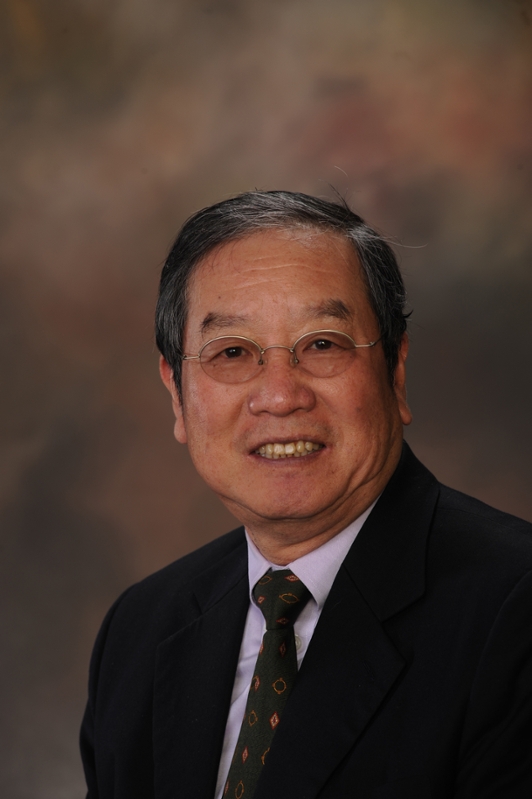Auburn leads $2 million DOE project to maximize fuel economy
Published: Oct 17, 2018 3:35 PM
By Paul Hollis
Auburn University researchers are leading a $2 million U.S. Department of Energy project that promises to improve fuel efficiency and economy. The project will create a bio-based fuel additive that can be blended with diesel fuel to reduce soot and greenhouse gas emissions and yield cleaner engine operation in cold-weather conditions.
Joining as collaborators in the research are Cornell University, the University of Alabama, Virginia Tech and corporate partners Microvi Biotech Inc. and EcoEngineers.
The project is one of 42 totaling $80 million awarded by the DOE to support advanced vehicles technologies research. Approximately $10.1 million of the funding will support six projects, including the one led by Auburn, focusing on the co-optimization of engines and fuels.
“We are developing an integrated bioprocess for efficient butyl acetate (BA) production,” said Yi Wang, principal investigator for the project and assistant professor in the Department of Biosystems Engineering. “We anticipate that adding BA to diesel fuel will reduce pollutants and costs associated with meeting environmental regulations.”
Butyl acetate is an organic compound that occurs naturally in various fruits and can be used as a flavoring in the food industry and a feedstock in various other industries. BA can be produced chemically. However, traditional petrochemical-based BA production is energy consuming and not environmentally friendly, Wang said.
Auburn researchers have developed a customized CRISPR-Cas9 genome engineering system that has resulted in an engineered strain with the highest BA production that has ever been reported in a microbial host (a patent has been filed from this work). The process uses a strain of Clostridium—a group of bacteria that thrive in the absence of oxygen—that is known for its ability to produce solvents.
“In this project, we will further enhance BA production through systematic genome engineering,” Wang said. “CRISPR technology has been used by many different labs, but we are one of the pioneering labs who have developed the customized CRISPR system that can be applied to the solventogenic clostridial strains, which are notoriously difficult to manipulate genetically.”
The knowledge generated from this research will be highly applicable to other bioprocesses and of broad interest to the scientific community and industry, he added.
“This project represents a complementary and synergistic collaboration between academia and industry,” Wang said. “Such efforts will decrease the cost and time required for developing new biotechnologies.”
The bioprocess development for high-efficiency BA production in this project is based on an innovative technology called MicroNiche Engineering.
“We are excited to be able to utilize our MicroNiche Engineering technology platform as part of this important project to help find better, more sustainable solutions for the transportation industry,” said Fatemeh Shirazi, CEO and CTO of Microvi Biotech Inc.
Professor Emeritus Y.Y. Lee from the Chemical Engineering Department at Auburn University will focus on the downstream recovery of BA from the developed bioprocess.
Engineering researchers at Cornell University and the University of Alabama will test diesel fuel blended with BA produced by Auburn researchers. The project goal is to understand how the fuel mix ignites and reacts in diesel engines used in commercial trucks.
Researchers at Cornell will examine more fundamental aspects of blending butyl acetate with diesel fuel in the form of droplets that represent the sub-grid element of a spray used for fuel injection into combustion engines.
“Our studies will elucidate the role of blending BA on burning without the flow and transport complexities found in a combustion engine,” said Professor Thomas Avedisian of Cornell's Sibley School of Mechanical and Aerospace Engineering.
Of interest are a fuel’s burn rate and propensity to form particulate matter or soot often found in an engine's exhaust stream.
“The data we obtain will have broader applicability that could lead to high fidelity models for predicting in-cylinder performance of BA blends in combustion engines,” Avedisian said.
Different mixes of the fuel—some with more BA than others—will be investigated using a unique spray diagnostic apparatus developed at the University of Alabama and in UA’s heavy-duty diesel engine test platform, one of the few engine test cell facilities in the country.
“Our engine facilities and capabilities complement well with Auburn’s ability to produce the fuel,” said Joshua A. Bittle, assistant professor of mechanical engineering at UA.
“We are providing research support from the end-user side,” said Ajay K. Agrawal, the Barfield Endowed Chair professor in mechanical engineering at UA. “We will find out how this fuel mix improves engine emissions and efficiency both inside the engine cylinder and in an actual engine during a typical drive cycle.”
Before a new process such as this can be up-scaled for commercialization, a techno-economic analysis (TEA) is warranted. Virginia Tech’s role in the project is to conduct a TEA to evaluate the economic practicality of the biofuel being produced, said Haibo Huang, an assistant professor in the Department of Food Science and Technology.
“We will develop comprehensive process models to rigorously calculate chemical, energy and water consumption in the scaled-up process,” Huang said. “Based on this platform data, we can determine the production cost of BA from the fermentation route and ultimately the economic feasibility of the process at a commercial scale. The outcome of TEA will be used as a guideline for directing future research of BA production from engineered Clostridium and will be vital for the future commercialization of the project.”
Quantifiable reductions in a fuel’s lifecycle emissions is one of the key factors in successful commercialization due to increasingly tighter restrictions on emissions in the transportation sector. The other corporate partner in the research project, EcoEngineers, a renewable energy consulting firm headquartered in Des Moines, Iowa, will perform a lifecycle emissions analysis of BA as a bioblendstock for diesel fuel.
“For this project, we will share our carbon analysis expertise to perform GREET (greenhouse gases, regulated emissions and energy use in transportation) life-cycle analysis and provide additional support as needed to quantify the environmental benefits of BA as a bioblendstock,” said Zhichao Wang, agricultural and environmental engineer with EcoEngineers.
The project is an example of Auburn’s strategic partnerships that deliver practical, life-changing solutions to pressing national needs.
Media Contact: , chris.anthony@auburn.edu, 334.844.3447



